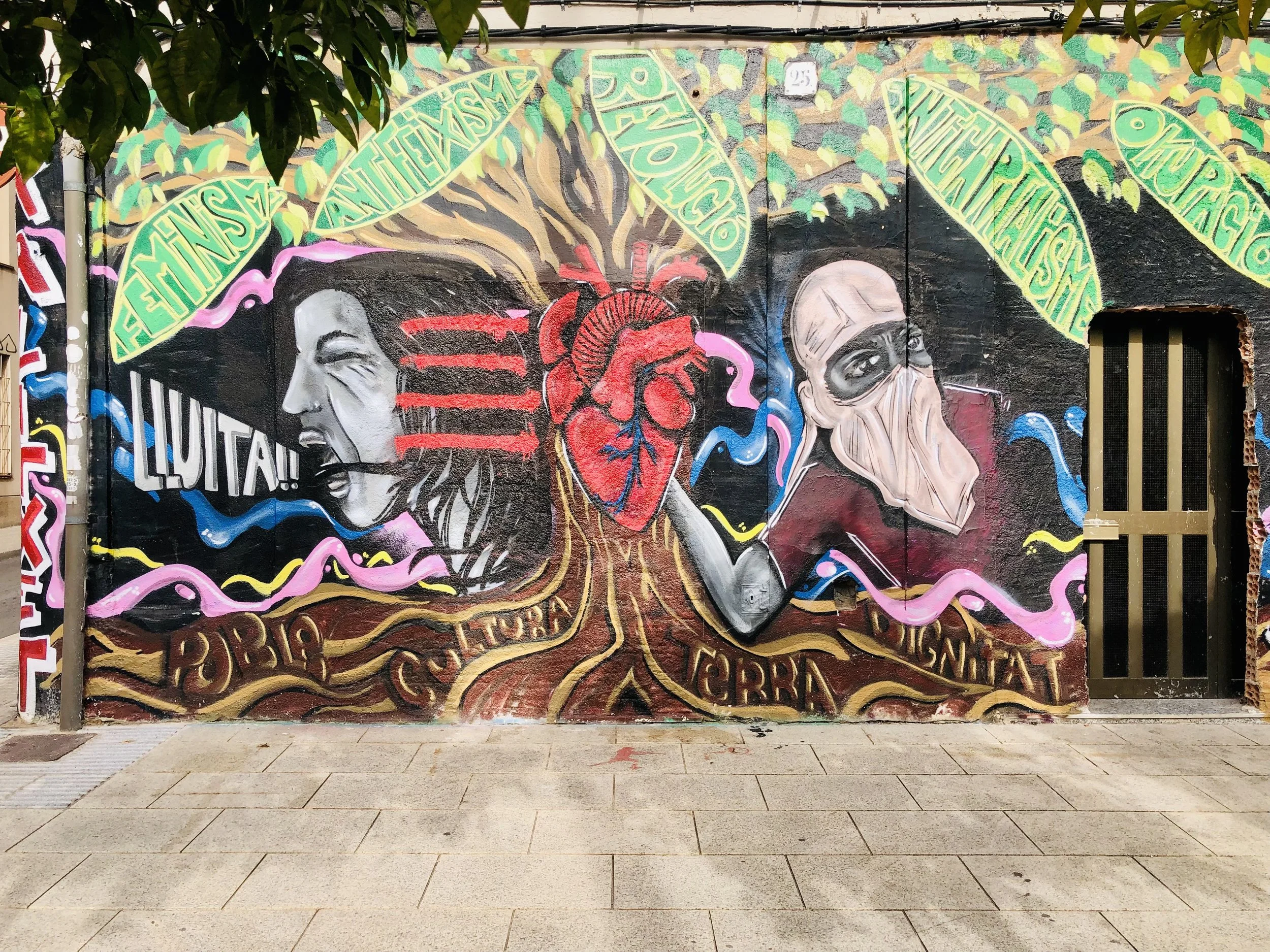Post contribution to Be the Earth Foundation on Mar 30, 2022
"Conditions of possibility for radical alternatives are embedded within the complex political ecologies of water struggle." Alex Loftus
Read the full blog contribution here: https://www.betheearth.foundation/post/water-war-women-and-empty-space
A short snippet:
“Empty space is that quiet space within you (and at times around you), from which to observe transitions unfolding - it is a threshold.
Thresholds symbolically are seen as liminal spaces, in-between or transitional that sit at a boundary, belonging to neither one side nor the other, and permitting the flow between one and the next. We are leaving something but have not yet fully inhabited what is coming next. Similar concepts have been adopted in spiritual practices, such as the Buddhist "bardo" - the state of existence intermediate between two lives on earth, or life and death, and navigating through confusion to then be reborn (Cuevas, 1996).
A whisper from one of our midwives Eve Annecke reverberates in my ear: from this liminal space notice the glitches in the system. If we are curious about those glitches, they can help us to understand a situation from a deeper level of awareness. We tend to always search outside of ourselves for the answers rather than turning inwards. From this ‘empty’ space deep within us come the insights that are the most radically subversive.
I decided to link this insight to my research on water. It has been argued that “liminal entities are transit subjects with transitional identities; shaken subjects that are capable of thinking and acting in unauthorized, unexpected and potentially innovative ways” (Varvarousis, 2019, p. 501-502). In the context of my research, I am exploring how fighting for water (particularly to deprivatize and to remunicipalize it) can be interpreted as a threshold or liminal space for recommoning water. That means to bring water back to the commons; to a sense of collective ownership or stewardship. This concept can provide an interesting lens to the study of actor subjectivities in the scope of how water movements are shaped by water and can consequently shape changes that relate to water; how it is governed, managed and stewarded. Water has always invited us to work together to steward it in common, even when it ‘seemingly’ divided us - it is us who stopped listening.
Now women…
In encountering my ‘empty space’, beyond linking this concept to my research, I reflected on the connection between water, war and women.
I came to realise (what many before me have argued and fought for) that we need to nurture more feminine power in the world, and most importantly a feminist political ecology – driving cultures of care for our commons. Feminine energy does not have to be associated with women only, as this is a creative force that transcends sexual orientation. But women have historically been the water bearers and stewards in most indigenous cultures. It is not a coincidence that there’s a direct link between women in power and environmental stewardship, like this 2019 study that found that female representation in national parliaments across 91 countries correlates with more stringent climate change policies and lower carbon emissions.
Like water, we all have the power to flood, destroy, drown, or kill. But also like water, we all have the power to flow, nourish, quench, refresh, inspire, and give life.
If we can take advantage of this particular glitch in human history, the moment we are living right now, a moment of violence and war, and consider it as a liminal space to ask ourselves: where to? What kind of leadership do we want to nurture for future generations? What structures need to die for new ones to be born? What creative, radically subversive alternatives can we reimagine? Perhaps more radical answers could come to us. What is most important is to come out of the liminal space with something profound and deeply transformative.
A pandemic slowed down humanity, temporarily, but failed to change systemic war-oriented structures and power hungry leadership. How can we emerge together from this leadership crisis to disrupt capitalist systems that exploit, and enable cultures of care and stewardship instead? An ecology of care towards the environment comes full circle to care for humanity, our water, and our future on this planet.
Women, it is (y)our turn. What subversively radical alternatives can you imagine from your ‘empty space’?
Dona Geagea: community-builder, facilitator, and water recommoning advocate, working at the intersection of water, environment and social transformation projects. Transitioned back to academia to work in a Marie Curie Innovation Training Network as Early Stage Researcher in the NEWAVE - Next Water Governance program, combined with a PhD at the Vrije University of Amsterdam for the next couple of years. She is an Aura Fellow and a Rotary Foundation Global Scholar.
LinkedIn: https://www.linkedin.com/in/dona-geagea
